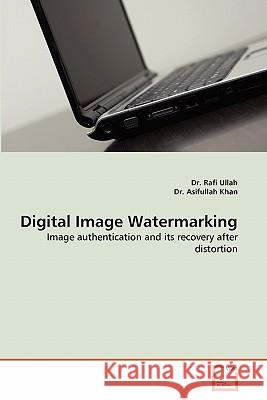Digital Image Watermarking » książka
Digital Image Watermarking
ISBN-13: 9783639325485 / Angielski / Miękka / 2011 / 116 str.
The digital information age has evolved with numerous opportunities and new challenges. The goal of this book is to provide a framework based on watermarking techniques that can be used for verifying the integrity of a digital image along with the recovery of the intentionally or unintentionally distorted digital image. The efficient and hybrid techniques have been developed in this book which makes trade-off between three contradicting properties of watermarking; imperceptibility, robustness, and capacity. The watermarking techniques given in this book are able to answer these questions, i) Has the image been processed? ii) Has the image been processed incidentally or maliciously? iii) Which part of the image has been processed and how much? Additionally, a self-recovery approach makes it possible to recover the exact version of the host image even after the image has been incidentally or maliciously processed.
The digital information age has evolved with numerous opportunities and new challenges. The goal of this book is to provide a framework based on watermarking techniques that can be used for verifying the integrity of a digital image along with the recovery of the intentionally or unintentionally distorted digital image. The efficient and hybrid techniques have been developed in this book which makes trade-off between three contradicting properties of watermarking; imperceptibility, robustness, and capacity. The watermarking techniques given in this book are able to answer these questions, i) Has the image been processed? ii) Has the image been processed incidentally or maliciously? iii) Which part of the image has been processed and how much? Additionally, a self-recovery approach makes it possible to recover the exact version of the host image even after the image has been incidentally or maliciously processed.











